For 20 years, Orange County Coastkeeper has defended and protected clean water in all parts of Orange County. By using legal action under the guidance of the Clean Water Act, we’ve stopped industrial polluters from harming our waters and worked with industries to strengthen their policies and commitment to clean water laws.
Over the past few years, we’ve directed our focus to the Newport Bay watershed due to its severe bacteria problem, which prevents people from swimming and fishing in the waters. We’ve been working with various facilities to develop best management practices to cut down on pollution, with the goal of reducing the overall bacteria rates in the Upper Newport Bay. We recently identified Serrano Creek Ranch Equestrian in Lake Forest as a contributor to water quality problems in the Creek, which also empties into Upper Newport Bay.
Why is Coastkeeper focusing on Serrano Creek?
With our focus of reducing bacteria in the Newport Bay watershed, we identified bacteria-tainted polluted runoff coming from the horse facility adjacent to Serrano Creek.
The Serrano Creek Ranch Equestrian facility houses up to 200 horses near Serrano Creek and lets unmitigated runoff of horse defecation into the creek during storm events. How do we know? We’ve successfully collected stormwater samples on December 6, 2018, and again on January 14, 2019, which were analyzed by a California certified independent laboratory, to uncover large amounts of bacteria in the water at Serrano Creek. We have also collected video footage that shows this polluted stormwater draining directly from the facility to Serrano Creek.
What is our process to protect water quality in Serrano Creek and Upper Newport Bay?
We sent a letter stating that we have an intent to sue Serrano Creek Ranch Equestrian and the City of Lake Forest for violations of the Clean Water Act. We did this because it’s a formal legal process that allows us to put the City and the operator on notice that the facility must apply for the proper permit (called a National Pollutant Discharge Elimination System permit for discharges from a CAFO). Compliance with the permit would require a daily plan to operate the facility to minimize the amount of pollution it allows to impact the surrounding community. It would require the facility to take steps to properly store and handle the manure it’s collecting and selling. Most importantly, with this permit in place, it will allow the horse park to continue its operation while protecting water quality.
What is a Concentrated Animal Feeding Operations (CAFO)?
Facilities that confine 150 or more animals for at least 45 days in a year generate massive amounts of manure and wastewater, and improper maintenance can cause runoff from defecation areas to spill into nearby waterways. The level of waste produced at these large facilities, classified as Concentrated Animal Feeding Operations, is more similar to an industrial farm facility or a large-scale equestrian event center than a typical place where animals graze. To protect public health, the Clean Water Act requires those who qualify as a CAFO to follow stricter regulations for capturing wastewater.
What’s next for Serrano Creek?
The City of Lake Forest and the Serrano Creek Ranch Equestrian have 60 days to respond to the letter that we sent to them. It is our hope that both parties recognize the value to follow the law. We then look forward to working with both parties to ensure the horse facility follows best management practices to handle numerous sources of pollution generated onsite and develop a plan to protect the public creek and Newport Bay.
What is our long-term vision?
CAFOs statewide can cause real danger and health concerns to the surrounding communities. While we see local water quality issues here in Serrano Creek and Newport Bay that we can address specifically, the holistic solution is to work at the state level to ensure that the industry complies with uniform permit standards that protect community health and the environment. Bringing all facilities into compliance with the Clean Water Act levels the playing field for businesses, ensuring that no business gains an economic advantage by ignoring the law.






